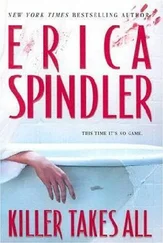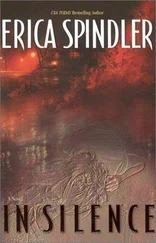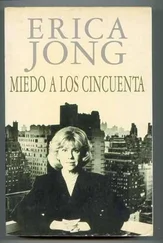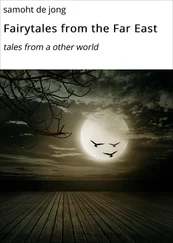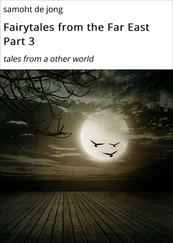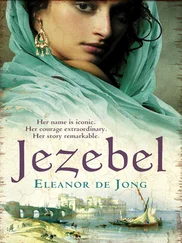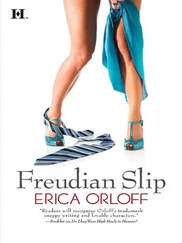After all this, I have neglected to say the most important thing of all-namely, that I was madly in love with him (with the accent on the mad). The cynicism came later. To me he was not a pompous, pimply young man, but a figure of legendary charm, a future Lenny Bernstein. I knew that his family (with their champagne-silk, decorator-decorated living-room-under-plastic-covers) was a hundred times more vulgar even than mine. I sensed that Charlie was more snobbish than he was intelligent. I knew he never bathed, never used deodorant, and wiped his ass inadequately (as if he were still hoping his Mommy would come to the rescue), but I was crazy about him. I let him condescend to me. After all, he was a devotee of the most universal of the arts: music. I was a lowly, literal-minded scribe. Most important, he was a piano player like my piano-playing father. When he sat down at the keyboard, my underpants got wet. Those continuos! Those crescendos! Those sharps! Those flats!
You know that awful expression “tickle the ivories”? That was how Charlie drove me wild. Sometimes we even used to fuck on the piano bench with the metronome going.
We met in a funny way. On television. What can be funnier than a poetry reading on television? It isn’t poetry and it isn’t television. It’s “educational”-if you’ll excuse the expression.
The program was on Channel 13 and it was a kind of salad of the seven arts-none of them lively. Why it was considered educational was anyone’s guess. There were seven young “artists” each of whom had four minutes to do his (or her) stuff. Then there was a puffy-eyed, pipe-smoking old fart with a name like Phillips Hardtack who interviewed each of us, asking us incisive questions like “what, in your opinion, is Inspiration?” or “what influence did your childhood have on your work?” For these questions (and about ten others) another four minutes was allotted. Apart from hosting shows like this Hardtack hacked out his living writing book reviews and posing for whiskey ads-two occupations which have more in common than appears on the surface. The Scotch Was always “light” and “mild” and the books were always “stark” and “powerful.” All you had to do was crank Hardtack up and out came the adjectives. Sometimes, however, he got them confused and called a book “light” and “mild” while he called the Scotch “stark” and “powerful.” For twenty-year-old Scotch and geriatric authors who had published memoirs, Hardtack reserved the word “mellow.” And for young authors and Brand X’s Scotch, Hardtack had this automatic response: “Lacks smoothness.”
Most of the “artists” on that show deserved Hardtack. There was a young fool who called himself a “cinemaker” and showed four minutes of shaky, overexposed film of what looked like two (or possibly three) amoebas dancing pseudo-pod to pseudopod; a black painter who called himself an activist-painter and only painted chairs (a strangely pacifist subject for an activist-painter); a soprano with very yellow, very buck teeth (Charlie was there to accompany her four minutes of trembling Puccini); a one-man percussion section named Kent Blass who jumped around spastically, playing drums, xylophones, glass fish tanks, pots and pans; a modern dancer who never said the noun “dance” without using the definite article; a social-protest folksinger whose native Brooklynese had been laced with elocution lessons, with the bizarre result that he pronounced God, “Garrd”; and then there was me.
They had rigged me up inside a gray plywood picture frame for my four minutes of poetry, and in order to reach it, I had to perch on a kind of scaffolding. Charlie was right below, sitting at the piano and staring up my skirt. While I read my poetry, his eyes were burning holes in my thighs. A day later he called me up. I didn’t remember him. Then he said that he wanted to set my poems to music, so I met him for dinner. I’ve always been very naive about ploys like that. “Come up to my apartment and let me set your poems to music” and I always come. Or at least go.
But Charlie surprised me. He looked scrawny and unwashed and hook-nosed when he came to my door, but in the restaurant he displayed his gigantic knowledge of Cole Porter and Rodgers and Hart and Gershwin: all the songs my father had played on the piano when I was a kid. Even the obscure Cole Porter songs, the almost-forgotten Rodgers and Hart songs from obscure musicals, the least-known Gershwin songs-he knew them all. He knew even more of them than me-with my total recall for catchy lines. It was then that I fell absurdly in love with him, transformed him from an unwashed hook-nosed frog-into a prince-a piano-playing Jewish prince at that. As soon as he recited the last stanza of “Let’s Do It” and got the words all right, I was ready to do it with him. A simple case of Oedipussy.
We went home to bed. But Charlie was so overwhelmed by his good luck that he wilted. “Conduct me,” I said. “I seem to have lost my baton.”
“Well then, do it like Mitropoulos-with your bare hands.”
“You’re a real find,” he said, thrashing around under the covers. But, hand or baton, it was hopeless. His teeth were chattering and great shudders were shaking his shoulders. He was gasping for breath like an emphysema patient.
“What’s the matter?” I asked.
“It’s just that you’re such a find, I can’t believe it” He seemed to be sobbing and choking alternately.
“Will you see me again in spite of this?” he pleaded. “You promise you won’t hold this against me?”
“What kind of ghoul do you think I am?” I was astonished. All my maternal instincts had been roused by his helplessness. “What kind of creep would throw you out?”
“The last one this happened with,” he moaned. “She threw me out and tossed my clothes to me in the hall. She forgot one sock. I had to go home on the subway with one bare ankle. It was the most humiliating experience of my life.”
“Darling,” I said, rocking him.
I guess I should have been tipped off about Charlie’s emotional instability by his sobbing and choking and shuddering-but not me. For me this only confirmed his sensitivity. The Prince and the Pea. It was understandable. Opening nights got him down. We could always sing Cole Porter together instead of fucking. But instead he fell asleep in my arms. He slept like no one I’ve ever known. He wheezed and sputtered and farted and thrashed. He groaned and shuddered. He even picked his pimples in his sleep. I stayed up half the night watching him in utter amazement.
In the morning he woke up smiling and fucked me like a stud. I had passed the test. I had not thrown him out. This was my reward.
For the next eight months or so we went together, usually spending nights either at his place or mine. I was in the process of getting an annulment from Brian, and was teaching at CCNY while finishing my M.A. at Columbia. I was still living in the same apartment where Brian had cracked up and I hated to stay alone nights, so when Charlie couldn’t stay with me, I followed him to the East Village and shared his narrow bed.
He loved me, he said, he adored me, he said, and yet, he kept holding back. I sensed something funny in his declarations of love, something tentative and insincere. I was wild because it was the first time anyone had ever held back on me. I was used to having the upper hand and his tentativeness incensed me. It made me more and more crazy about him, which in turn made him more and more tentative. The old, old story.
I knew there was another girl in Paris, an old girlfriend from Radcliffe now studying philosophy at the Sorbonne. According to Charlie, they were just friends. It was over, he said.
She was plump and dark-haired and (according to him) had this most annoying habit of falling into a dead sleep after getting laid. She had gone to Paris to get away from him, and had a French boyfriend who lived with her on the Rue de la Harpe (Charlie seemed to know the particulars pretty well for someone who no longer gave a damn). But if all that was true, then why did she sign her letters to him “I love you”? Was it just to keep an ace in the hole? And how about him? Was she his ace (or ass) in the hole? Or was I?
Читать дальше
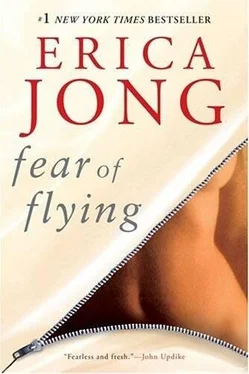
![Brian Jacques - [Flying Dutchman 01] - Castaways of the Flying Dutchman](/books/128851/brian-jacques-flying-dutchman-01-thumb.webp)


